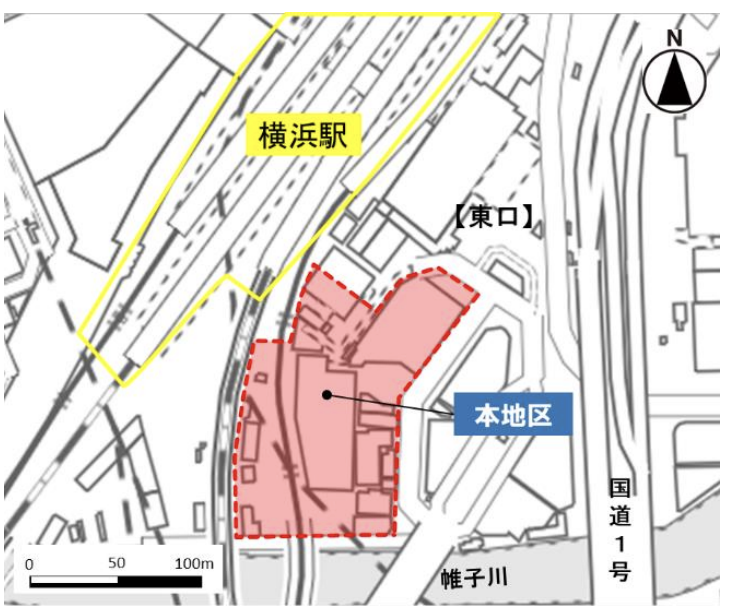Why do asset owners from generation to generation continue to emphasize investment in real estate, in addition to financial assets such as stocks and bonds, as many people seek to build assets? Behind this lies their unique "real estate philosophy," which goes beyond mere pursuit of profit and aims at long-term asset protection and value creation.
Real estate investment is an extremely well-balanced asset management method that allows for both stable income gains (rental income) and capital gains (profit on sale) from future increases in value. In particular, its resistance to inflation and its tax advantages in inheritance planning are major attractions that financial assets do not offer. However, not all real estate can be the "chicken that lays the golden egg. How do asset owners identify the "true assets" among the many properties that will continue to create value in the future?
In this article, based on our experience as INA & Associates, Inc. in helping numerous high-net-worth clients build their assets, we will explain in plain language from a professional perspective the real estate philosophy and specific investment strategies emphasized by asset owners for generations to come. We hope that this seminar will help everyone, from those who are new to real estate investment to those who already own multiple properties, to build their wealth.
Philosophy of Real Estate Investment for Successful Asset Owners
There are several philosophies that successful asset owners have in common when it comes to real estate investment. They are not concerned with immediate gains, but rather with the long-term, big-picture view of their assets.
Focus on long-term value creation, not short-term profits.
Wealth investors' real estate investments are distinct from short-term speculation, in which they sell for a profit after a few years. Their goal is to build assets that will maintain and increase in value over 10, 20 years, or even generations, and continue to generate stable income. Based on this philosophy, they calmly assess the intrinsic value of a property, i.e., its location, future potential, and profitability, without being swayed by fads or temporary market fervor.
Determine real estate that is an "asset" rather than a "liability
As noted investor Robert Kiyosaki stated in his book "Rich Dad, Poor Dad," "Assets put money in your pocket; liabilities take money out of your pocket. Asset owners will enforce this definition in their real estate investments as well. Even if a property looks nice, if it has a high vacancy risk or is expected to have large repair costs in the future, it is considered a "liability" that puts pressure on cash flow. They are looking for "true assets" that continuously generate cash flow and increase the overall value of the asset.
Maximize the leverage effect to increase self-financing efficiency
One of the key features of real estate investment is the "leverage effect," the ability to use loans from financial institutions. Compared to investing solely with one's own funds, leverage makes it possible to invest in assets of a larger size and at higher yields. Asset owners dramatically increase the investment efficiency of their own funds by taking full advantage of their own creditworthiness to obtain loans on favorable terms. Of course, excessive borrowing entails risk, but they practice safe and effective use of leverage based on detailed simulations.
Portfolio construction with an awareness of the balance between income gains and capital gains
Returns from real estate investments are broadly divided into income gains and capital gains. Rather than focusing on one or the other, asset owners build portfolios with an awareness of the balance between the two. For example, if the goal is stable income gain, they may invest in rental condominiums in the city center, and if the goal is capital gain, they may invest in land in redevelopment areas. This is how we aim to diversify risk and maximize returns.
Specific Real Estate Investment Strategies Practiced by High Net Worth Individuals
How do wealthy individuals translate these philosophies into concrete investment strategies? Here, we will explain the typical strategies they implement, along with data.
Concentrated investment in prime central Tokyo locations and redevelopment areas
Asset owners particularly like to invest in areas with a high concentration of population and economic activity, such as central Tokyo. These areas not only have stable rental demand and low vacancy risk, but also offer great potential for future asset value appreciation. The table below compares the rate of change in land prices in central Tokyo and suburban areas.
| Area | Base land price in 2025 (year-on-year change) |
|---|---|
| Tokyo 23 wards (commercial land) | +13.2 |
| Tama area (commercial land) | +5.5 |
Source: Tokyo Metropolitan Government, "Summary of Reference Land Prices in Tokyo in 2025.
As can be seen, land prices in central Tokyo are rising at a higher rate than those in the suburbs, indicating that this is an extremely promising market for targeting long-term capital gains. Asset owners are analyzing such macro data and concentrating their funds in areas with potential.
Property Selection Based on Long-Term Holding
For asset owners seeking to create long-term value, the "quality" of a property is an extremely important factor. They do not choose a property simply because of its high yield. They place importance on the structure of the building, the grade of facilities, the state of management, and above all, the "rarity of the location. This is because these factors are the foundation for maintaining asset value over the long term and ensuring stable rental demand.
| Building age | Asset value (when new construction is set at 100) |
|---|---|
| 5 years | 90-95 |
| 10 years | 80 to 85 years |
| 20 years | 60 to 70 years |
| More than 30 years | 40-50 (but varies greatly depending on location) |
Note: The above are general trends and will vary depending on the property's management condition and location.
As the above table indicates, the value of buildings declines over time, but if the property is in a prime location in the city center or other location with high land value, the increase in land value will exceed the decline in building value, increasing the likelihood that the total asset value will be maintained or even increase.
Building a Real Estate Portfolio with Inheritance Protection in Mind
For wealthy individuals, real estate is not only an investment, but also an extremely effective "inheritance strategy" tool to ensure the smooth transfer of assets to the next generation. Compared to cash or stocks, real estate has the great advantage of significantly reducing the assessed value for inheritance tax purposes.
Working with a Team of Experts
Real estate investment requires a wide range of expertise, including legal, tax, financial, and architectural expertise. Successful property owners do not rely on their own knowledge and experience, but rather build a close network with experts in their fields, such as lawyers, tax accountants, and real estate consultants. By proactively incorporating the objective advice of these professionals, they are able to improve the accuracy of their investment decisions and avoid potential risks. Finding a trusted partner, in itself, is one of the key success factors in real estate investment.
In Summary: Real Estate Investing to Build the Future
This article has described the real estate investment philosophy and specific strategies practiced by generations of wealthy individuals. At the root of their approach is the creation of asset value from a long-term perspective, rather than the pursuit of short-term profit. They view real estate not as a mere "thing" but as a "business" that continues to create value for generations to come, and they are steadily expanding their assets through the use of precise strategies and the expertise of specialists.
The key points are summarized below.
- Philosophy: Focus on long-term value creation and identify real estate that will become "assets" rather than "liabilities.
- Strategy: Concentrate investment in prime urban locations, select properties based on the premise of long-term ownership, and build a portfolio with an eye toward inheritance protection.
- Execution: Manage risk and maximize returns by wisely utilizing the leverage effect and working closely with a team of experts.
Real estate investment is not an easy path. However, with the right philosophy and strategy, and a steady, step-by-step approach, it is possible to achieve financial freedom and security for the future. We would be more than happy if this article could deepen your understanding of real estate investment and help you take the first step toward success.
If you are interested in discussing your real estate investment or learning more about specific strategies, please feel free to contact us at INA & Associates, Inc. We will be happy to provide you with the best solution for your individual situation.
Frequently Asked Questions
Q1. How much personal funds do I need to start investing in real estate?
A1. Although it is difficult to say, it is easier to obtain financing from financial institutions if you can prepare 10% to 20% of the property price. For example, for a 50 million yen property, 5-10 million yen is a good guideline. However, conditions vary depending on personal attributes and the profitability of the property, so please consult with a specialist first.
Q2. Are there any advantages to investing in regional properties?
A2. Compared to urban areas, regional properties tend to have lower property prices and higher yields. However, vacancy risk due to population decline and the risk of declining property values must also be considered. From a long-term perspective, it is generally considered that the risk is lower in central Tokyo, where rental demand is more stable.
Q3. What is the greatest risk in real estate investment?
A3. The biggest risk is "vacancy risk. If rental income ceases, loan repayments and expense payments are taken out of one's own funds, and cash flow deteriorates. To avoid this risk, it is essential to choose a competitive property in an area with stable rental demand.
Q4. Which do you recommend, new or used properties?
A4. Each has its own merits and demerits. While new construction has new facilities and no immediate repair costs, it is more expensive and has a lower yield. Used properties are less expensive and have higher yields, but the risk of repairs and old facilities are disadvantages. It is important to choose according to your investment objectives and risk tolerance.
Q5. How should I choose a management company?
A5. Selecting a reliable management company is an important factor in determining the success of your real estate investment. Make a comprehensive comparison of the company's track record in recruiting tenants, the number of units managed, the responsiveness of its staff, and its system for handling repairs and troubleshooting. It is important to talk to several companies to find a partner that fits your investment style.

Daisuke Inazawa
Representative Director of INA&Associates Inc. Based in Osaka, Tokyo, and Kanagawa, he is engaged in real estate sales, leasing, and management. He provides services based on his extensive experience in the real estate industry. Based on the philosophy that “human resources are a company's most important asset,” he places great importance on human resource development. He continues to take on the challenge of creating sustainable corporate value.

.png)













